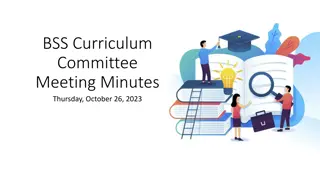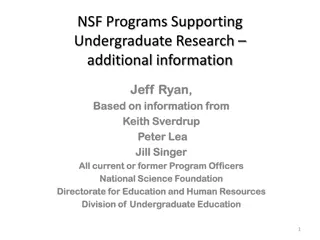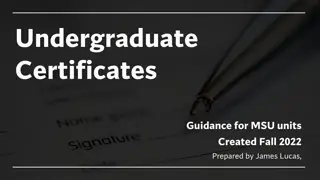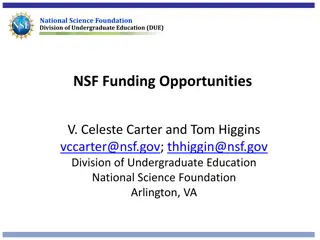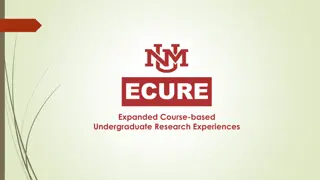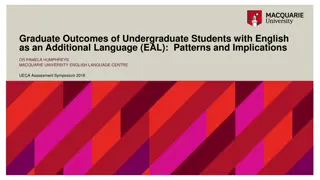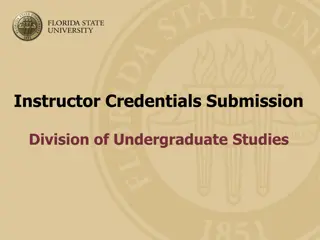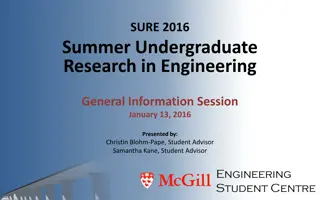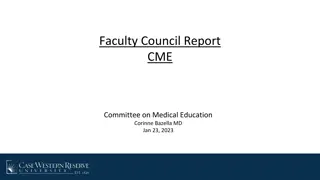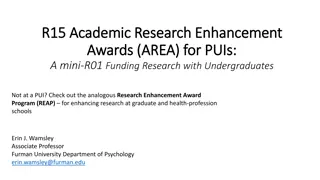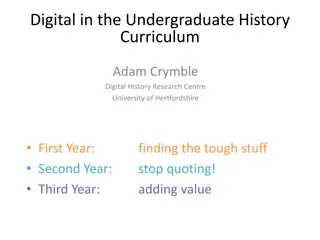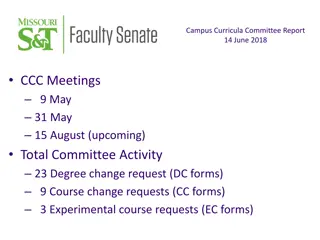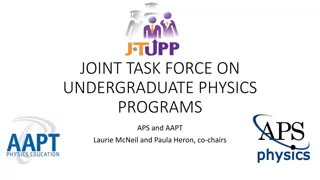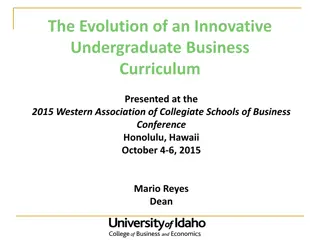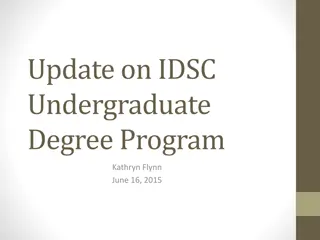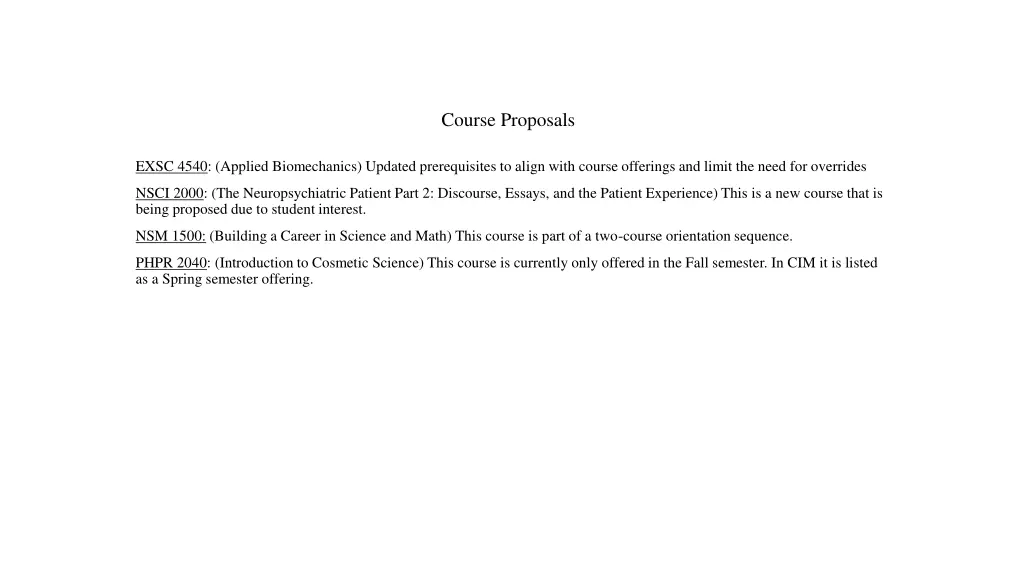
Innovative Course Updates in Biomechanics and Neurology
Explore the curricular changes in courses like Applied Biomechanics and Neuropsychiatric Patient Part 2 driven by student interests and the need for structured support in science and math careers. Discover how prerequisites are adapted to align with course offerings and student needs.
Download Presentation

Please find below an Image/Link to download the presentation.
The content on the website is provided AS IS for your information and personal use only. It may not be sold, licensed, or shared on other websites without obtaining consent from the author. If you encounter any issues during the download, it is possible that the publisher has removed the file from their server.
You are allowed to download the files provided on this website for personal or commercial use, subject to the condition that they are used lawfully. All files are the property of their respective owners.
The content on the website is provided AS IS for your information and personal use only. It may not be sold, licensed, or shared on other websites without obtaining consent from the author.
E N D
Presentation Transcript
Course Proposals EXSC 4540: (Applied Biomechanics) Updated prerequisites to align with course offerings and limit the need for overrides NSCI 2000: (The Neuropsychiatric Patient Part 2: Discourse, Essays, and the Patient Experience) This is a new course that is being proposed due to student interest. NSM 1500: (Building a Career in Science and Math) This course is part of a two-course orientation sequence. PHPR 2040: (Introduction to Cosmetic Science) This course is currently only offered in the Fall semester. In CIM it is listed as a Spring semester offering.
EXSC 4540 (Applied Biomechanics) What evidence of student learning or need prompted this curricular change? Updating prerequisites to align with course offerings and limit need for overrides. Prerequisites as displayed in the Catalog: ( KINE 2510, Minimal grade: C, Academic level: UG And KINE 2530, Minimal grade: C, Academic level: UG ) Or ( EXSC 2510, Minimal grade: C, Academic level: UG And EXSC 2530, Minimal grade: C, Academic level: UG ) Modified or New Prerequisites ( KINE 2510, Minimal grade: C, Academic level: UG And KINE 2530, Minimal grade: C, Academic level: UG ) Or ( EXSC 2510, Minimal grade: C, Academic level: UG And EXSC 2530, Minimal grade: C, Academic level: UG ) Or ( EXSC 2560, Minimal grade: C, Academic level: UG And EXSC 2570, Minimal grade: C, Academic level: UG ) EXSC 4540 Syllabus PREREQUISITES AND COREQUISITES Prerequisites: KINE 2510 and KINE 2530 with a minimum grade of C or EXSC 2510 and EXSC 2530 with a minimum grade of C.
NSCI 2000 (The Neuropsychiatric Patient Part 2: Discourse, Essays, and the Patient Experience What evidence of student learning or need prompted this curricular change? Student interests is driving the creation of this course. CATALOG/COURSE DESCRIPTION This is a continuation of the NSCI1000 course The Neuropsychiatric Patient (prerequisite) that is an introduction to the diagnosis, disease and pathophysiology of the nervous system. This course will take a deeper dive into issues raised in the fall course, with a focus on directed readings, revising and publishing essays from NSCI1000, and sessions with patients with neuropsychiatric disorders. COURSE OVERVIEW/ TEACHING METHODOLOGY This is an introductory course (with NSCI1000 as a prerequisite) for students interested in learning about diseases of the central nervous system. The course format is a weekly two-hour session that will focus on directed readings and movies related to brain diseases. Some classes will include discussions with patients, authors, and other stakeholders in the field of brain disorders.
NSM 1500 (Building a Career in Science and Math) What evidence of student learning or need prompted this curricular change? The current Orientation course for new incoming students to the College of Natural Sciences and Mathematics (NSM 1000) is a 2 credit one semester course that supports students in their transition to college and provides some professional development as well. However, currently there is no equivalent formal support for second semester students, most of whom could benefit froma continuation of structured weekly support and development provided in NSM 1000. In addition the rollout of touchpoints in the current course is too condensed, and students would be better served with a two course sequence across the entire 1st year with a greater focus on academic skills in the first semester and professional development in the second semester. Many other institutions have similarly moved to year long FYE courses in order to better support and retain their first year students. The proposed changes include splitting the current 2 credit NSM 1000 into two 1 credit courses - a modified NSM 1000 (Foundations of Academic Success for Science and Math Majors) in the fall semester followed by the new NSM 1500 (Building a Career in Science and Math )in the spring. Earlier this semester Faculty Senate approved of the this two-course sequence and NSM 1000 as a one credit offering
PHPR 2040 (Introduction to Cosmetic Science) What evidence of student learning or need prompted this curricular change PHPR 2040 is only offered in the Fall semester. The CIM listing had Fall and Spring semesters. The modification is to list this course as a Fall semester course. The fall semester is consistent with the supplied syllabus PHPR 2040: Course Syllabus Introduction to Cosmetic Science The University of Toledo BSPS Cosmetic Science and Formulation Design Major, College of Pharmacy and Pharmaceutical Sciences PHPR2040:001 [CRN 46048] Instructor: Dr. Gabriella Baki Term: Fall 2023






